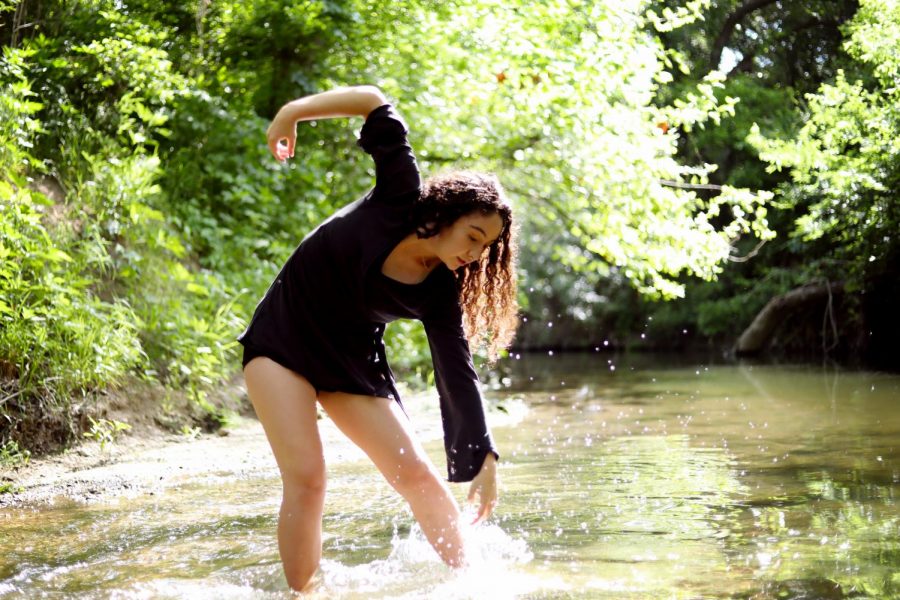Dance students address struggle, trauma, discrimination in Cohen New Works Festival
April 23, 2021
Editor’s Note: This article first appeared in the April 20 issue of The Daily Texan.
Standing in the middle of a grass field, four masked dancers dressed in jeans and white tops extend their arms out. Each dancer’s forearm contains a single handwritten word that collectively reads: We Are All Human.
“We create all these boundaries and labels on people that we forget the main thing, that we are all humans,” dance senior Ivana Castañeda said.
The Cohen New Works Festival is held biennially and is run entirely by students who showcase music, plays and dance. The 2021 festival occurred April 12-16 and included works addressing discrimination, racial trauma and white supremacy, while also challenging dance traditions.
For her dance film project, Beyond the Wall, Castañeda featured four Latinx dancers to help portray the trauma resulting from language barriers and the often idolized American Dream.
“I deal with (language barriers) every day and the elusiveness of opportunities and the trauma itself,” Castañeda said. “My background being from Colombia and a dancer added more of a personal sense to the film.”
To symbolize the experience of people crossing the border, Castañeda used voice-overs of her Latinx interviewees describing their experiences with discrimination and layered them against images of rivers and a field of grass.
“It gave me the opportunity to show myself and give a voice to other people,” Castañeda said. “It is really (rare) to see a specific dance film about Latinx people. The festival (gave) me the opportunity to do that (and it) meant a lot.”
Howard Rochelle used his dance film, Xpress VIBE The Bigger Picture, to address 2020’s “polarizing sense of doom” by filming improv and freestyle dance in front of the “If he can’t breathe, we can’t breathe” mural by Chris Rogers in downtown Austin.
“The theme was that now more than ever, we’re forced to deal with what’s happening right now in front of us, and we can’t run away from it,” said Rochelle, a dance graduate student. “We can’t tuck (it) away and ignore it.”
When art is blended with technology, Rochelle said creative outlets become more accessible to others.
“Art curates what happens in the world,” Rochelle said. “When you put that on the back burner, you’re saying that you don’t want people to be connected to the greater society as a whole.”
Since 2019, Tiffany Merritt-Brown, a dance graduate student, has been researching how Black people live in the U.S. political environment and how communities can sometimes act as sources of healing.
This year, she was able to translate her research through her dance film, Therapie Au Chocolat, which filmed dancers performing traditional African dance technique on a Miami, Florida beach. She said her work has been influenced by elements of nature and their potential to be a source of healing for Black trauma.
In times of grief, Merritt-Brown said people tend to turn to the arts for solace. Art has often reflected the culture and politics of the time, and she said her dream is for it to influence society.
“My dream for the arts is that we become a place of tangible change,” Merritt-Brown said. “So much so that when people look at us, they have a model of what the world should look like.”
Editor’s Note: Tiffany Merritt-Brown and Howard Rochelle title’s have been corrected from dance and social justice students to dance students. The Texan regrets this error.



